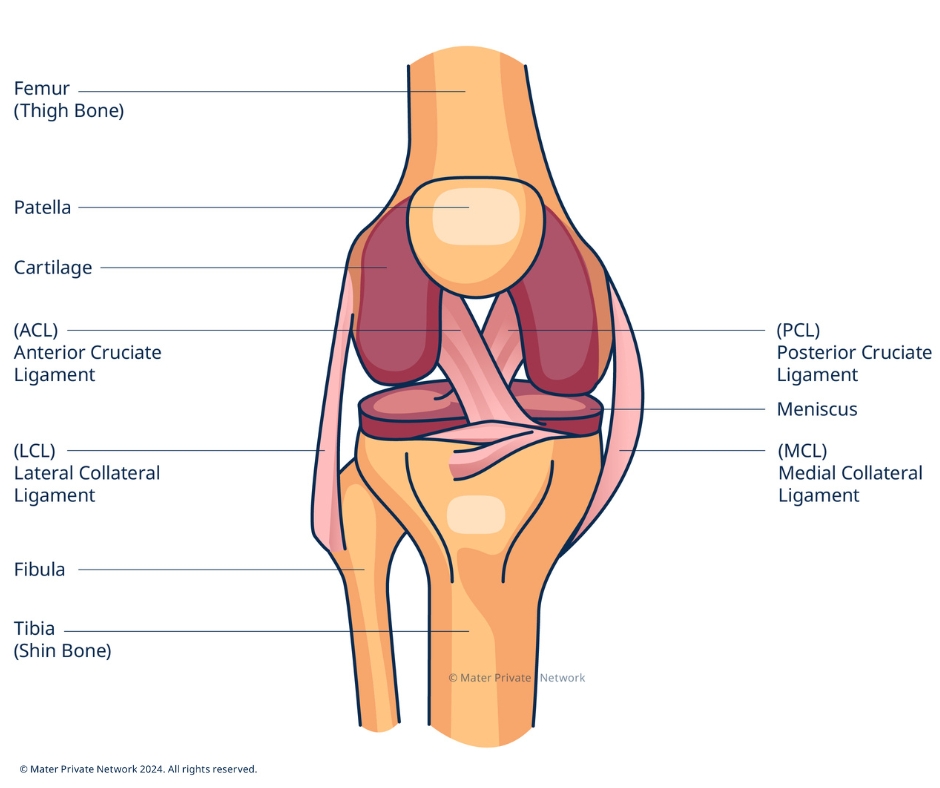Partial Knee Replacement
Contact Us
Request an AppointmentPlease note that a referral letter is required before an appointment can be confirmed.
Please note that a referral letter is required before an appointment can be confirmed.
Useful Information
About this service
As the name suggests, in a partial knee replacement, only part of the knee is replaced with an implant. An incision is made over the knee and the diseased or damaged bone is removed from the joint.
If degenerative disease is only on one side of your knee you may be eligible for a partial knee replacement rather than a total knee replacement. Your consultant will be able to advise you which option is a suitable option based on your scans.

Frequently asked questions
As with a total knee replacement, a partial one has an implant that is cemented to the femur and another component that is attached firmly to the tibia. In between both of these is a highly cross linked polyethylene plastic.
Patients usually spend one or two nights in hospital following the procedure. During this time the nursing staff and doctors make sure that you are as comfortable as possible, and that your recovery is as it should be. A physiotherapy programme, which is essential to your full recovery, will also be put in place during your stay, and you will need to follow this both in the hospital and at home.
Both the technology and the materials used for knee replacements are very advanced and have significantly improved the lifespan of knee prosthesis. Having said this, there are other factors that may determine whether or not your knee will need to be replaced and although some people may require “revision” surgery the numbers are small.
Post-operative pain is normal but can be reduced with over-the-counter medications such as paracetamol and anti-inflammatories. During your hospital stay nursing staff will monitor this. A general rule is that you should decrease your use of these medications over time.
Fluid can accumulate in the legs. It is quite usual for this to occur after you have been discharged from the hospital, and is generally due to the fact that you are more active at home. To alleviate this, elevate your legs at night by lying on your back and placing pillows under your legs so that they are above your heart.
Compression stockings worn during the day may also help and can be purchased from most pharmacies.
This depends on the nature of your job. Taking sufficient time to recover properly is vital to the success of your operation, and during this period, you should be focusing on your rehabilitation programme.
You will initially walk with a frame and staff assistance, over time progressing to walking with two walking sticks or elbow crutches. The physiotherapy team will guide you on the journey to walk independently with the appropriate mobility aid. Our shared goal is to have you walking independently before you leave the hospital.
To maximise your recovery, the nursing staff and physiotherapists will help you start moving with your new knee as soon as it is safe, usually on the same day as your surgery. Most commonly, you will begin by walking with a frame and staff assistance. As you progress, the physiotherapy team will guide you to walk independently with the appropriate mobility aid. Our shared goal is to have you walking independently before you leave the hospital.










